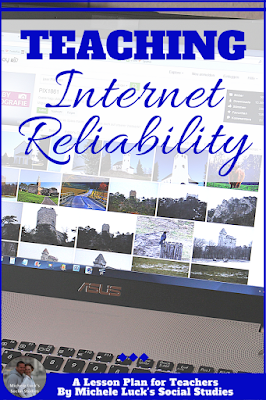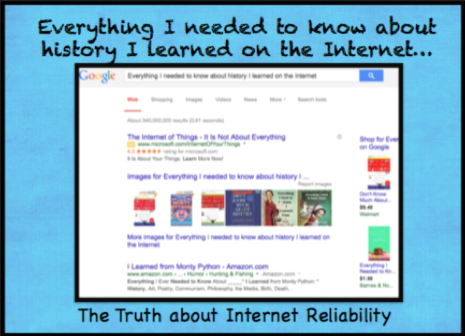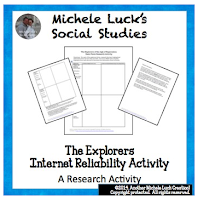
This past week I have seen so many “resources” on the Internet that clearly misrepresented the stories they were trying to tell. While there can still be value in those resources, it is so important that students understand the truth about those resources, and the truth about the Internet itself.

Here is the first lesson on Internet reliability: Google “Everything I learned about history I learned on the Internet.” Of course, your results will include a number of books you can purchase to enhance your history knowledge, but the first website link is… Are you ready for this? It’s a review of the book about learning everything and anything you need to know from Monty Python. Sad. Just sad.
The first actual site about history that comes up in the search is on the third page and is the BBC Learning History website. So, there are many lessons to be learned from this!
While my search was very general in terms of historical content, search results are just as random for most topis searched by our students. With this understanding, we must make sure our students are informed about the Internet and the reliability of the information they will find there regarding any topic of study.
To start, have students evaluate each website and its information on the following criterion:
- Accuracy – first examine details provided that are easy to check. Basic facts such as dates, significant names, and key events are easy to verify for accuracy, helping to validate other information suggested by the website.
- Organization – check for the clarity and development of the website. If the information is presented in a way that does not attempt to persuade you without verification, then there is more chance of reliability.
- Writing Style – trust information that is written with clarity and accuracy in mind. If a site is written with poor grammar or organizational structure, it is likely that little time was taken to evaluate accuracy as well.
Or, you can simply teach a lesson that will help students quickly find the discrepancies on their own, helping them to realize that the Internet (or one site on the Internet) is not 100% reliable and should never be considered as the know all, be all!
Here is a Free & Fabulous resource to help you teach that lesson…the Explorers Internet Reliability Research Activity allows students to investigate information on the great explorers from two different websites. One will provide drastically different information than the other. How can they know which to trust?

And be sure to jump over to the Secondary Smorgasbord Happy Hour Free & Fabulous Linky for other great freebies that will help you teach with confidence, knowing you have resources that are created and tested by teachers for teachers!

Happy Teaching!